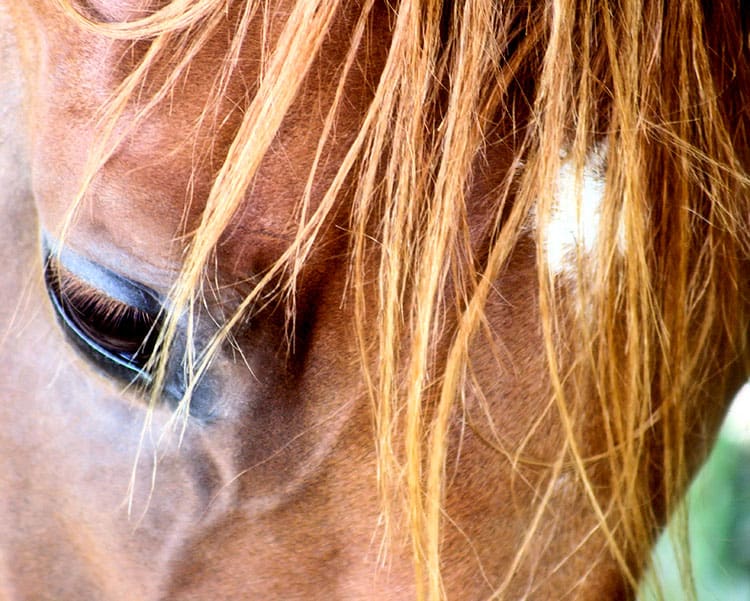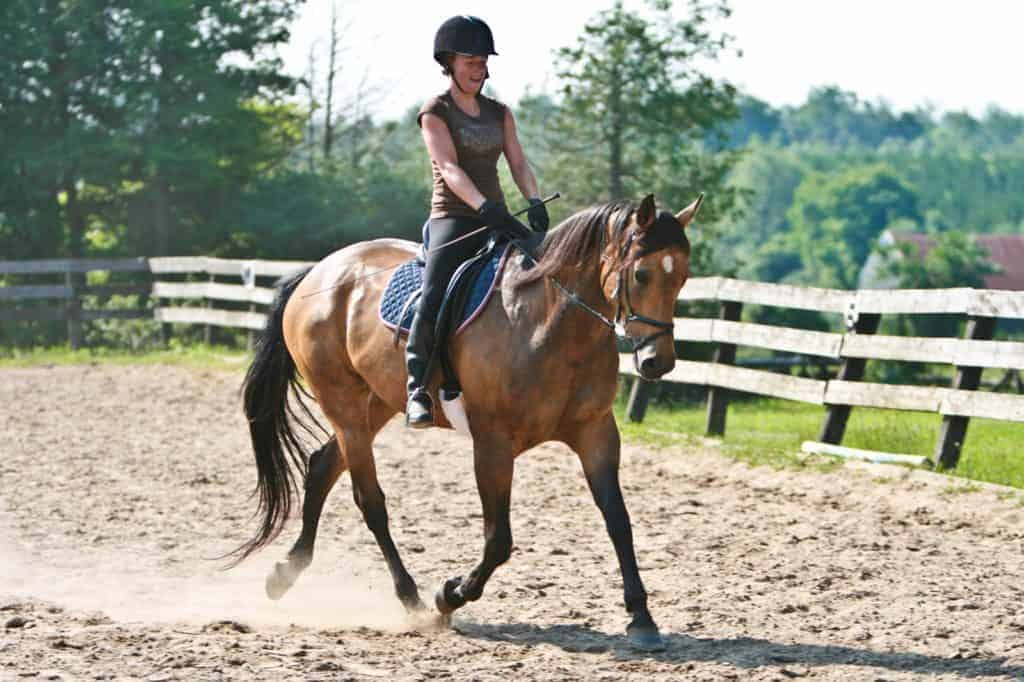
How Sensitive Is Your Horse’s Face? New Tools Can Tell You
Researchers measured horses’ facial sensitivity to touch, pressure, and heat. The results could help diagnose cases of equine idiopathic headshaking and improve welfare.

Researchers measured horses’ facial sensitivity to touch, pressure, and heat. The results could help diagnose cases of equine idiopathic headshaking and improve welfare.

Learn about the clinical signs of colic and what to do if your horse experiences a bout.

Learn how horse owners can use empathy to predict and interpret horses’ behaviors and respond appropriately.

Researchers observed horses in three scenarios with unfamiliar humans armed with carrots. They found the horses reacted differently based on the humans’ intentions.

A University of Wyoming researcher reviewed 10 years of data about BLM wild mustang and burro captures and related equid injuries and death.

Equine adventurer, trainer, and author Tik Maynard got the chance to watch a “scenting” horse used for search and rescue in action. Here’s what happens when you let a horse follow her nose.

Researchers observed feral herd interactions during a three-year study and found effective mare-foal vocal communication seems to help foals survive.

Study: Horses stalled on nonedible bedding ‘rebounded’ during the day, consuming their daytime rations faster with fewer pauses than horses living on straw.

Researchers found horses pulling tourism carts didn’t have excessive demands placed on them but did make recommendations for improved welfare.

Many training styles and riding mistakes can make a horse less responsive to cues, pressure, and even pain—and that’s often the early stages of learned helplessness. Learn how to identify and prevent this negative mental state.

Learn about your horse’s health, behavior, and personality as you acclimate him to a new home, diet, and herd.

A study led by Dr. Sue Dyson found signs of lameness in 73% of horses riders identified as sound. Also, nearly 50% of the horses’ saddles showed signs of poor fit.

Equine welfare researcher Dr. Natalie Waran addresses the importance of studying, measuring, and caring about our horses’ quality of life.

In fact, geldings exhibited more unwanted behaviors than mares during tacking and riding.

The online questionnaire allows owners, trainers, and industry professionals to evaluate and monitor horse behavior, training, and management over time.

Do you have a cinchy horse? Follow this step-by-step advice to modify his behavior.
Stay on top of the most recent Horse Health news with
"*" indicates required fields